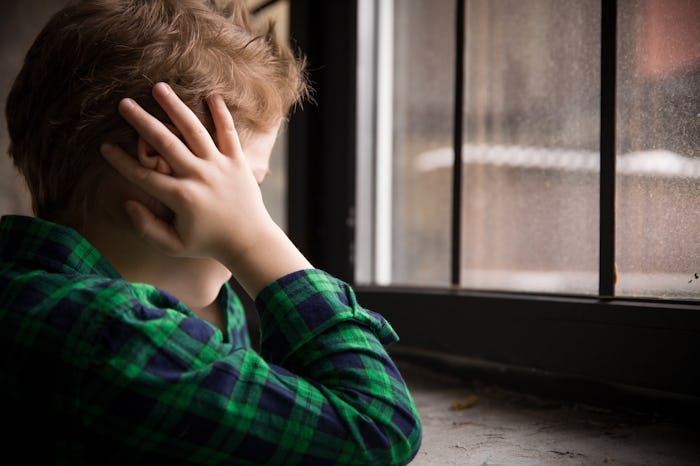Life

7 Tools to Help Your Special Needs Children Handle Stress
Meltdowns occur frequently with children on the autism spectrum, particularly more often when it is difficult to get outside and move around. I used to struggle so hard to find ways to help my son, and we sometimes still go through periods of adjusting his toolbox to deal with anxiety and stress. I have talked to other parents as well as the professionals about what has worked for them in the past. The feedback I received was amazing, especially the tools to help your special needs children handle stress.
To be successful in handling their emotions, special needs kids need a mixture of physical and psychological ways to de-stress. They can use a mix of any of the items below, or sometimes one or two of the suggestions will fit the bill. We need to have a healthy body and mind balance to be able to cope with stress and to be resilient in life. This goes double for our special needs children. Education and self-sufficiency are important, but the true test will be how they handle stress and anxiety with tools from their toolbox. Any or all of the following seven tools would work great to help them keep calm during stressful times.
1Yoga And Meditation
In her article “The 7 Benefits of Yoga for Kids With Autism,” yoga teacher Elizabeth Rowan noted that “yoga is a chance to learn stretching, breathing, [and] thinking skills that you can use to calm yourself when you feel worried or overwhelmed.” As she explained, her son “does not like to do it every day, but he enjoys meditation when he feels anxious or his structure has completely changed.” If you’re not sure how to get your child flowing into child’s pose, great children’s yoga DVD’s like Kids ABC Yoga or Cosmic Kids Yoga are a great place to start. Kids go on adventures with the lovely Jamie get stress relief at the same time.
2Set Up A Mini Trampoline, Swing, Or Sports Arena
It may mean giving up some adult area, but is well worth the time and cost to your child’s health. Not only does it find an outlet for their energy, but exercise will help them cope with stress, anxiety and depression,” as teacher and special needs parentLorna d’Entremont wrote in her article, “Children With Special Needs-Benefits of Physical Activities and Active Sports.” She noted that parents can also benefit from this, as they can catch their breath while the kids play.
3Put On Some Music And Let Loose
The act of singing, dancing, moving is therapeutic in itself, and for children with autism or other special needs, music helps them to decode information, react appropriately to their environment, and handle stress better. "Music does not require semantic interpretation,” music therapist Dorita S. Berger wrote in her book Music Therapy, Sensory-Integration and The Autistic Child. “It simply provides an environment – a sound blanket – wrapping itself around the body and providing a sense of safety and security.”
4Change The Scenery
This is a good tool to use in the daytime and when the weather is pleasant. On cold, dark days, stick to teaching your child to walk around in a room or from room to room to move and calm their mind. Asspecial needs consultant Angela Leung’ wrote in her article, “10 Activities to Relax Your Child With Special Needs,” one of her favorite ways to calm down is going for a walk with your child. “Taking a walk can help to release some of the extra energy that has been building up in your child, especially if he/she needs a break from an activity,” she wrote. “A change in scenery and fresh air is helpful.”
5Read A Book
This even applies to children who can’t read. Looking at the pictures and deciphering the meaning of the story is a good exercise in using the brain in a fun and constructive way. “Reading early helps build independence and self confidence,” according to Reading By Phonics. “ It helps children make more sense of the world around them.”
6Play In A Sensory Bin
There is something so natural about playing in sand and with Play Doh that is therapeutic. “Sensory play has a calming effect by allowing your child to focus on one sense, and block out others,” Gabriella Volpe, educational consultant and mother of special needs child, wrote on her site. “Even if you don’t have the space for a bin, keeping these materials on hand will be helpful to you and your family.” I have always made sure (as have many of my friends) to have on hand simple materials to create sensory bins in our homes for our children.
7Write Social Stories
For children who respond well to this method, writing a social story can be very useful. A social story is essentially a small piece of writing that details an event or events that will be occurring. Writing in simple language can help a child with special needs know what to expect therefore eliminating some of the anxiety. Carol Gray, special needs teacher and noted Consultant and Seminar Speaker/ Coordinator to Children, Adolescents and Adults with Autism, has been providing support to the autism community for years using the evidence-based practice of social story writings to help children navigate through stressful or anxiety provoking events.
This article was originally published on